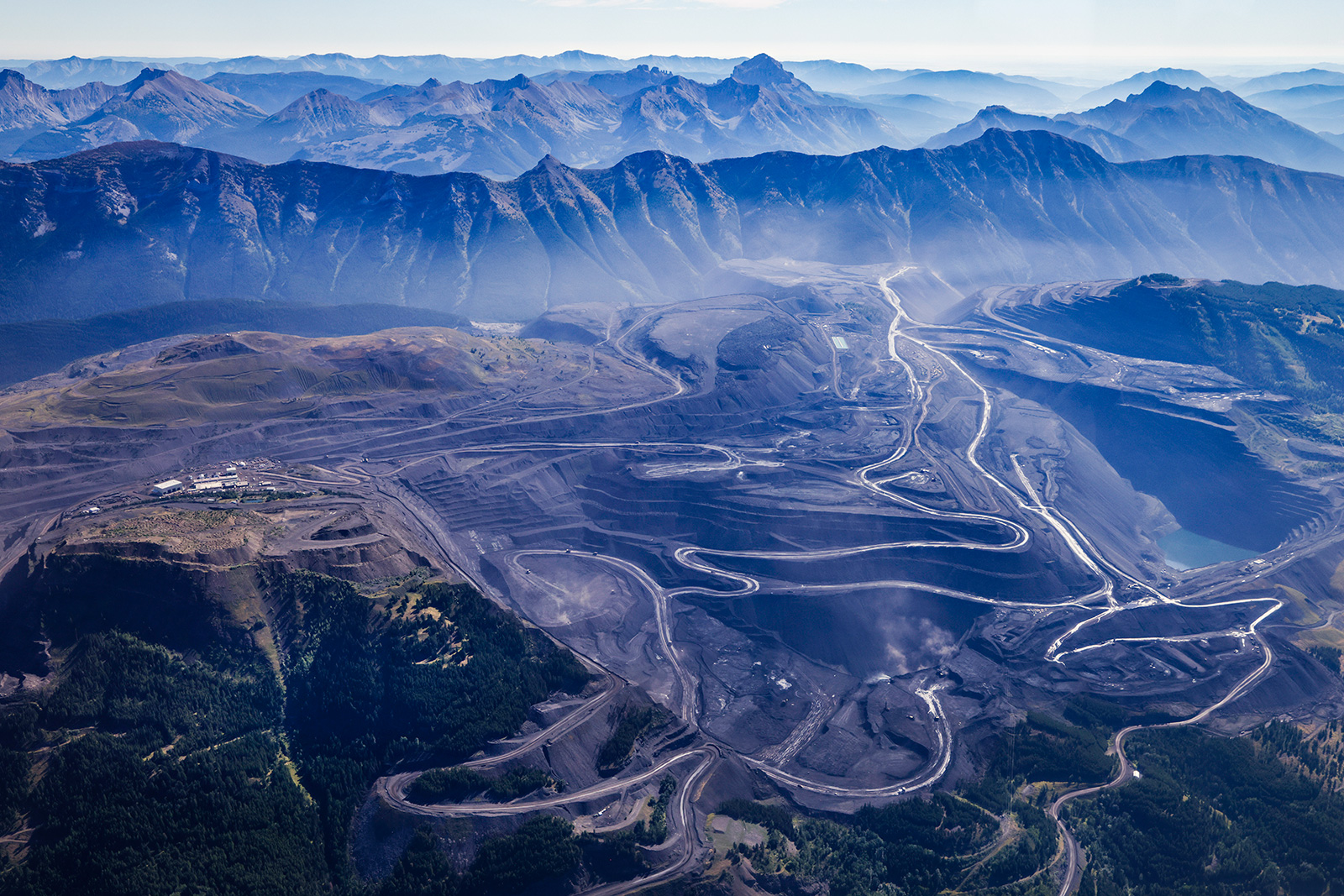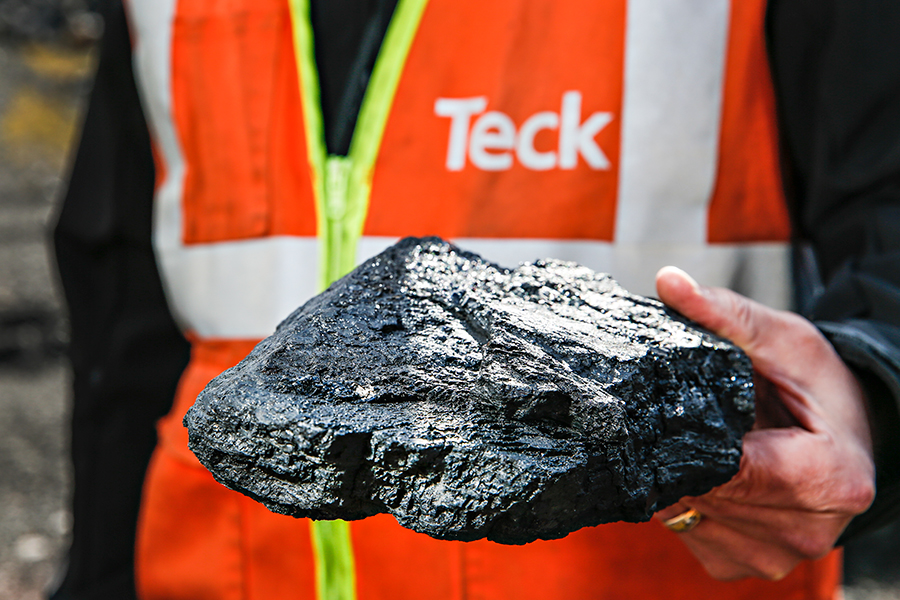Conservation Groups Petition Canada for Details Surrounding Environmental Cleanup Obligations of Transboundary Watershed
A legal petition to Canada’s federal government seeks information surrounding the Swiss-based mining giant Glencore’s proposed takeover of coal mines in B.C.’s Elk Valley, upstream of Lake Koocanusa
By Tristan Scott
Canadian conservation groups have petitioned their federal government for details surrounding the Swiss-based mining giant Glencore’s proposed purchase of five coal mines situated in the Elk River Valley north of Lake Koocanusa, where for decades mining contaminants have leached downstream, causing an international water pollution crisis.
The petitioners Wildsight and Ecojustice are demanding to know what measures exist to ensure appropriate reclamation securities are in place, and if the new owners will be held financially accountable for cleaning up the contamination in the Elk River Valley. Contaminated runoff from piles of waste rock at the five mines has led to elevated concentrations of the mining toxin selenium in waterways stretching from Fernie and Sparwood, B.C., to communities spanning the border in Montana and Idaho.
Selenium concentrations from the mines, currently owned by Teck Resources Limited, consistently breach both B.C. and Montana water quality standards. In March, a Wildsight-commissioned report revealed that concentrations of mining contaminants leaching into the Elk and Kootenai River watersheds are so elevated that it will cost $4.7 billion and six decades of treatment to reverse them — and that taxpayers stand to pay billions of dollars for the cleanup due to insufficient reclamation securities held by the B.C. government.
According to Wildsight, the cost estimates are about three times the amount the provincial government has required Teck to set aside in reclamation security bonds. The report, which was completed by a third-party consulting firm, Burgess Environmental Ltd, calculates what it will cost to implement Teck’s current plan to build water treatment plants and operate them for 60 years. The $4.7 billion price tag translates to $6.4 billion CAD.
A spokesperson for Teck said the estimates Wildsight published are “inaccurate and inconsistent with calculations made under B.C. government policy.”

“Teck meets all current bonding requirements as set out by the provincial government policy, and we are committed to meeting all reclamation obligations at no cost to government or taxpayers,” according to Chris Stannell, public relations manager for Teck. “Teck will have $1.9 billion for the Elk Valley operations, as per the requirements and calculations under the B.C. Government policy. We have a proven track record of successfully reclaiming mine operations in B.C. and beyond and we are committed to protecting water quality in the Elk Valley.”
A reclamation security is a financial assurance, often referred to as a bond, that mining companies must provide to the province to cover environmental reclamation and remediation costs in case of insolvency or emergency. It is designed to ensure the financial burden associated with clean-up costs falls on industry rather than taxpayers.
However, the petitioners argue that those assurances will be compromised by Teck’s proposed spin-off of its steelmaking coal business, known as Elk Valley Resources, and its sale of a majority stake to Glencore.
“The financial risk to taxpayers will increase exponentially if ownership of these mines passes from Canadian owned Teck Resources to Glencore, a foreign entity that has publicly declared its intention to spin-off the mines within two years of the sale going through,” Casey Brennan, Wildsight’s conservation director, said. “We want to know how Ottawa is factoring that risk into its decision making, and what it’s doing to make sure polluters, not taxpayers, pay.”
The joint petition was submitted to Canada’s Commissioner of the Environment and Sustainable Development Jerry DeMarco on June 17 after being prepared by Ecojustice lawyers with support from Wildsight.
“The petition will legally oblige the government to answer questions regarding how its final decision factors in the significant and foreseeable liability to taxpayers around the cleanup of these mines,” Brennan said.
Kiran Rhines, senior communications advisor for Canada’s Office of the Auditor General in Ottawa, said the agency received the petition on June 17.
“As the intermediary between the public and 100 petitionable entities, our role is to review and assess petitions to ensure they meet the criteria listed in section 22(1) of the Auditor General Act. After that, we forward these petitions to the implicated entities for them to provide a response within 120 days of receiving the petitions,” Rhines wrote in an email.

Fraser Thomson, the Ecojustice staff lawyer who submitted the petition, said Canada’s Commissioner of the Environment and Sustainable Development Jerry DeMarco is legally obligated to pass along the petition to the federal government under the Auditor General Act.
“From receipt of the petition, the appropriate ministers must consider and respond to all eight questions posed by it within 120 days. This process will force the government to respond on the record for all to see,” Thomson said.
In addition to concerns surrounding the potential deficiency in security bonds, Thomson said Glencore’s environmental track record is disturbing.
“In B.C alone, Glencore is already delinquent on their modest commitments of $8.6 million in bonding in three of their four inactive properties,” the attorney wrote in the petition. “In Columbia, a Glencore subsidiary simply deserted two coal mine operations in 2020 when operation was deemed uneconomic … Furthermore, in Montana, Glencore’s shuttered Columbia Falls Aluminum Company Plant was listed on the National Priority List and designated as a superfund site in 2016, meaning that long-term cleanup of a portion of the 2,400-acre site has been ordered. Estimates from the EPA suggest that it would cost between $624 million and $1.4 billion USD to clean up and it does not appear that any cleanup of this site has occurred.”